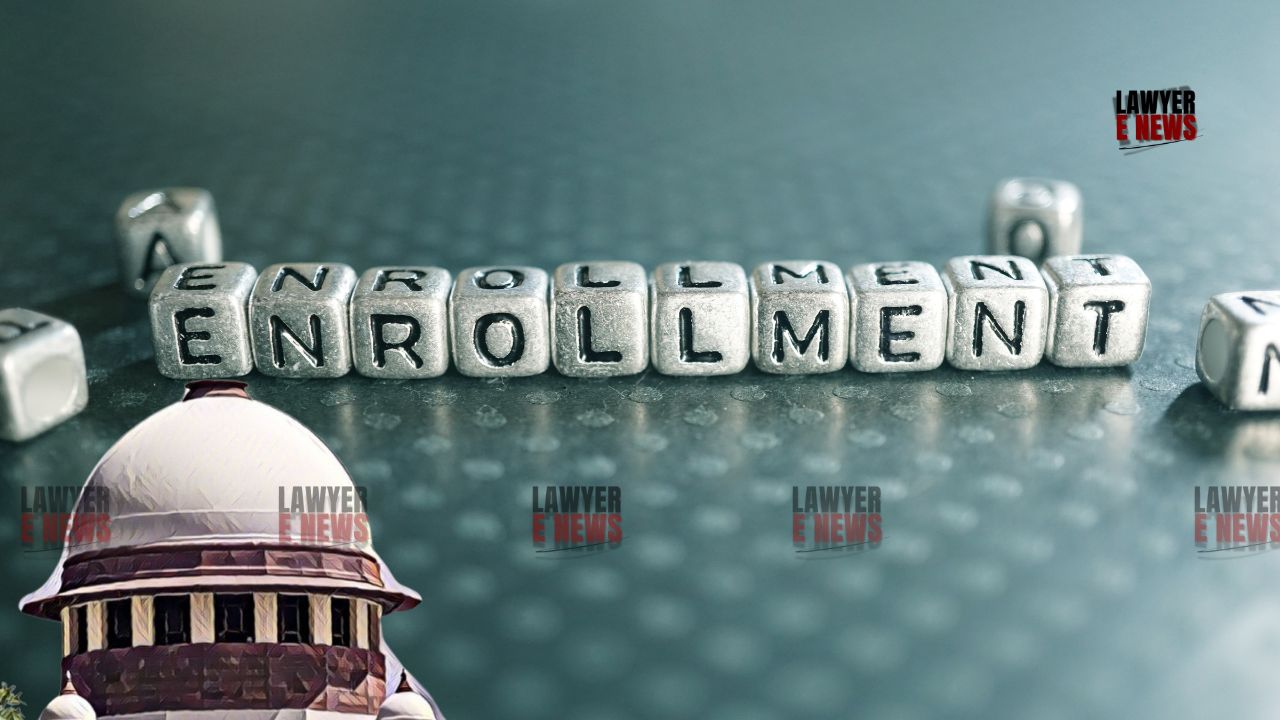-
by sayum
14 February 2026 2:22 PM



Court mandates adherence to Section 24(1)(f) of Advocates Act; Excess fees charged deemed unconstitutional. In a significant ruling, the Supreme Court of India has declared that State Bar Councils (SBCs) cannot charge enrolment fees exceeding the amount prescribed by Section 24(1)(f) of the Advocates Act, 1961. The judgment, delivered by a bench comprising Chief Justice Dr. Dhananjaya Y. Chandrachud and Justice J.B. Pardiwala, emphasized that any additional fees imposed at the time of enrolment are unconstitutional and infringe upon the principles of substantive equality and economic justice.
The case arose from a series of petitions challenging the excessive fees charged by various SBCs at the time of enrolment. The petitioners argued that these fees, often charged under different heads such as library fees, identity card fees, and welfare fund contributions, far exceeded the statutory limit set by Section 24(1)(f) of the Advocates Act, which stipulates an enrolment fee of ₹750 for general candidates and ₹125 for SC/ST candidates.
The court elucidated the legislative framework governing the enrolment of advocates, highlighting that the Advocates Act establishes a uniform enrolment fee across India. The court observed that the Bar Councils, both at the state and national levels, do not possess the authority to levy fees beyond this statutory limit .
The bench underscored the principle of substantive equality under Article 14 of the Constitution, stating that exorbitant enrolment fees create economic barriers for law graduates from marginalized and economically weaker sections. The judgment noted, "The current enrolment fee structure charged by the SBCs is unreasonable and infringes Article 19(1)(g) of the Constitution" .The court further emphasized that imposing high fees as a precondition for enrolment restricts the fundamental right to practice any profession, guaranteed under Article 19(1)(g). The ruling declared such financial demands as arbitrary and an unreasonable restriction on the right to practice law .
The Supreme Court's ruling mandates SBCs to adhere strictly to the enrolment fees prescribed under Section 24(1)(f) of the Advocates Act, 1961. By declaring all miscellaneous charges at the time of enrolment as part of the enrolment fee, the judgment aims to eliminate economic barriers and uphold the constitutional principles of equality and justice. This landmark decision is expected to pave the way for more inclusive access to the legal profession and reinforce the regulatory framework governing legal practice in India.
Date of Decision: July 30, 2024
Gaurav Kumar vs. Union of India and Others
